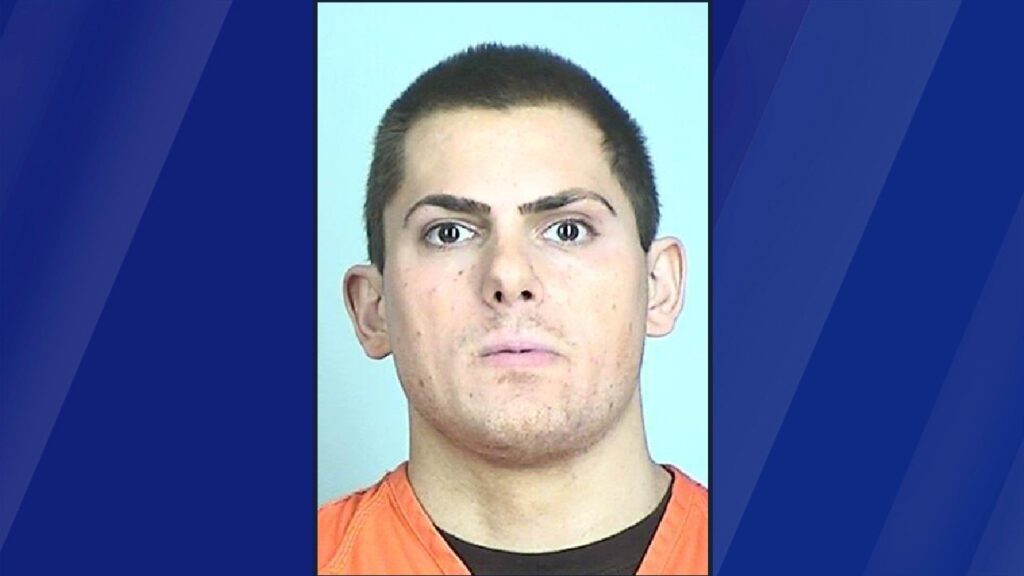Federal prosecutors detail upcoming sex trafficking case against Tony Lazzaro
[anvplayer video=”5166578″ station=”998122″]
Federal prosecutors say Anton “Tony” Lazzaro invited teenage girls as young as 15 to his luxury penthouse in downtown Minneapolis, gave them alcohol and offered stacks of cash in exchange for sex.
Prosecutors say Lazzaro would then send the girls home with hundreds of dollars, vape pens, and a drug to prevent pregnancy known as Plan B, according to federal court records filed this week.
The new details lay out the most comprehensive look to date at the government’s case against the 32-year-old. The trial is expected to start later this month.
A spokesperson for Lazzaro sent 5 INVESTIGATES a statement Wednesday that read in part: “The recent filings continue to rely on erroneous factual allegations and do not cure the fundamental flaws of the government’s case.”

A grand jury indicted Lazzaro in the summer of 2021 on federal child sex trafficking charges. The GOP donor and strategist pleaded not guilty to the charges and is in custody awaiting his trial.
RELATED: Tony Lazzaro’s year in jail: Hundreds of phone calls, 13 attorneys and a Tesla
The new details lay out the most comprehensive look at the government’s case against the former GOP donor and strategist since his indictment on federal child sex trafficking charges.
Lazzaro’s arrest rocked the Republican Party in Minnesota. It led to the return of thousands of dollars in campaign cash and the resignation of former party chair Jennifer Carnahan.
The federal case, according to the filing, centers around five minor victims. Prosecutors say they were recruited by Gisela Castro Medina.
In December, Medina pleaded guilty to one count of conspiracy to commit sex trafficking. Prosecutors confirmed in the court filing that she is cooperating and will testify about her role at the trial.
Former United States Attorney for Minnesota Rachel Paulose said letting the jury hear what happened from Medina’s perspective could bolster the prosecution’s case.
“I think that co-conspirator testimony, in this case, will help the government present a more seamless narrative than would otherwise have been possible,” Paulose said in an interview Wednesday.
“Broken girls”
According to the court documents, Lazzaro told Medina he wanted her to find him vulnerable victims who he described as “broken girls.”
Prosecutors say Lazzaro paid the girls for various sex acts, often using hundred-dollar bills. In exchange for sex, he also gave the victims alcohol, cell phones, flavored vape pens and designer purses.
In one instance, Lazzaro allegedly sent an Uber an hour away to pick up a girl from a sleepover. Prosecutors say the victim, who was 15 years old, brought two of her 14-year-old friends with her to Lazzaro’s apartment.
This level of detail at this point in the case, Paulose said, is unique. Prosecutors are not required to file this sort of briefing document with the court before a trial.
“The defendant has been given a very clear picture of precisely what witnesses will testify at trial, the nature of their testimony, and the type of evidence that will be offered against him,” she said.
Lazzaro is also facing obstruction charges. In July 2020, according to the filing, a victim went to the police. In response, prosecutors say Lazzaro’s attorney sent a Non-Disclosure Agreement, or NDA, to the victim’s family. The document stated Lazzaro would pay the 16-year-old $1,000 if she agreed not to “disparage Lazzaro” and would agree “she had engaged in a ‘consensual interaction.'”
Prosecutors have filed a motion that, if approved by the presiding judge, would prohibit Lazzaro and his attorneys from making reference to the age of consent during the trial.
“Consent is not a defense in a human trafficking case involving a minor victim,” Paulose said. “In this case, we have multiple minor victims under the age of 18.”